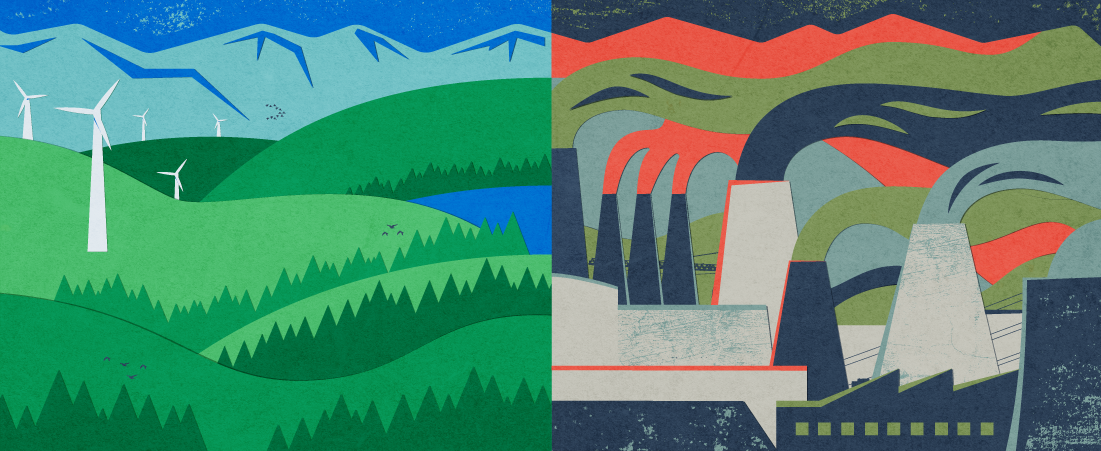
“I am not here to speak about the future, I am the future.”
Those powerful words, spoken earlier this month by Vinisha Umashankar, a 15-year old student and environmentalist, at COP26, the United Nations climate change conference, were perhaps some of the most impactful words said during the 12-day long conference.
Umashankar went on to paint a picture of how closely important climate goals align with her own life. Take for example, that by 2030 when our world aims to have halved carbon emissions, so many young people will be in their twenties and thirties. Or by 2050, when Canada has committed to reaching net zero emissions, many people from my generation will be nearing or in our fifties.
The direct comparisons between global climate targets and our personal lives hit home because it means that what happened at COP26 and the targets set from it will directly impact us.
COP26 — standing for Conference of Parties — was the 26th annual climate change summit. It was intended as an opportunity for countries to revisit commitments made in the 2015 Paris Agreement — including evaluating efforts made towards the 2015 commitment to keep global warming below two degrees Celsius.
So what happened during these crucial 12 days?
For starters, it seemed that there was a breakthrough on coal. For the first time at a UN climate change conference, there was a plan to reduce coal use. But, by the end of the conference, countries agreed to “phase down” coal, not outright “phase out.”
While action on coal is needed — after all, it accounts for 40 per cent of annual carbon dioxide emissions — it is clear that we need nothing short of a “phase out.”
In regards to carbon dioxide emissions, countries agreed to meet next year to commit further cuts to emissions. It is predicted that if current commitments are met, global warming will be limited to 2.4 C. However, more commitment is needed, because scientists predict that we need to keep global warming to 1.5 C to avoid “climate catastrophe.”
Another important topic was providing support to developing countries to manage the effects of climate change and transition to less carbon intensive energy and economic industries.
At COP26, countries committed to increase the money provided to developing countries to manage these effects. However, some African and Latin American countries felt not enough headway was made on this front.
After all, last year’s pledge for developed countries to provide 100 billion dollars a year to support developing countries was missed.
Other notable outcomes included world leaders promising to end deforestation by 2030, which is important because trees absorb carbon dioxide. Countries also agreed to “phase-out subsidies that artificially lower the price of coal, oil, or natural gas.” But no deadlines have been set.
Additionally, more than 100 countries agreed to reduce 30 per cent of methane emissions by 2030. However, China, Russia and India, the biggest emitters on this front, have not yet joined this agreement.
Naturally, after hearing this wide range of commitments, one might ask what concrete action is being taken to ensure these promises come to life, and how accountability towards meeting these commitments will be held.
Both questions lead to the same answer.
The pledges made at COP26 are not legally binding. Therefore, the progress made towards meeting these commitments is essentially self-monitored.
So,how can we hold ourselves and countries accountable to the promises made? Furthermore, how can we measure the progress we are making towards the commitments?
I think that’s where citizen accountability comes in. We need to follow up with our local, provincial and national governments about the promises made at COP26 so that those words are translated into concrete actions.
We need to push — not only at election time, but year round — for climate change to be a focus of conversation. We are experiencing and will continue to more severely experience the consequences of climate change and can’t only rely on words anymore.
It’s an understatement to say we need action, because without action, we are wiping away the security of our collective futures. So, let’s act to ensure that the COP26 promises are met and hopefully, exceeded.
—
This op-ed was written by a University of Saskatchewan undergraduate student and reflects the views and opinions of the writer. If you would like to write a reply, please email opinions@thesheaf.com. Vaidehee Lanke is a fourth-year undergraduate student studying bioinformatics and is the Opinions Editor at The Sheaf Publishing Society.
Graphic: Jaymie Stachyruk | Graphics Editor
Leave a Reply